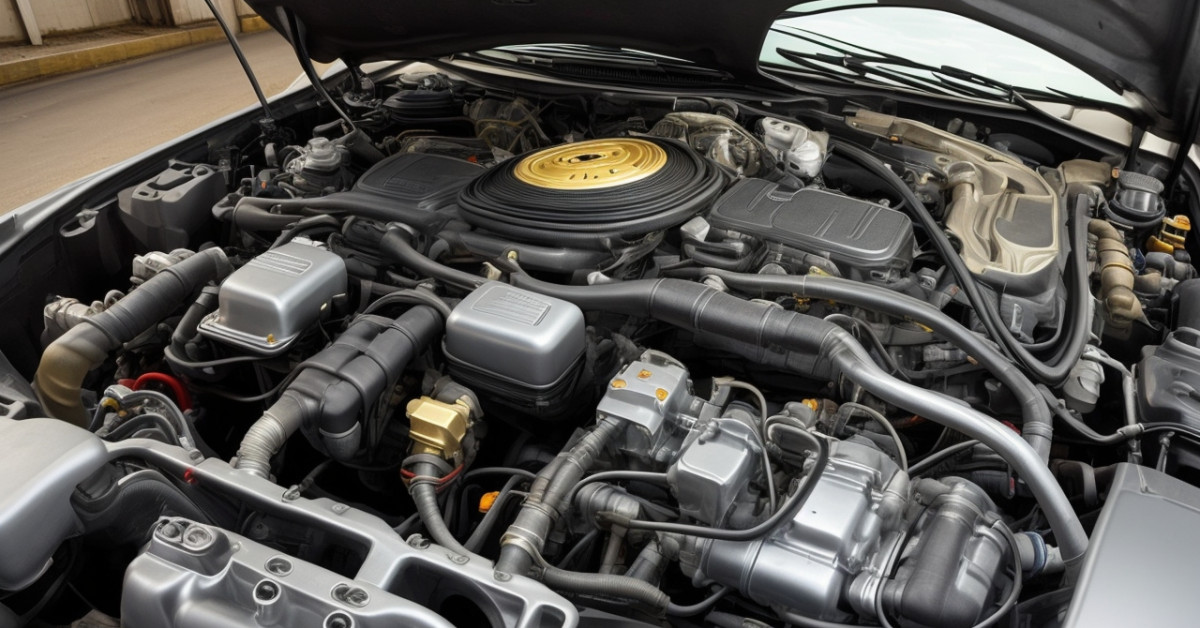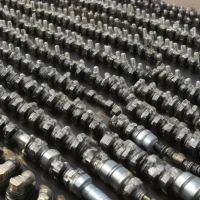Your Car Jerks When Accelerating? Here’s The Potential Issue and Fix – Has your smooth drive turned into a jerky nightmare? If your car is stuttering and shaking just when you need it to smoothly accelerate, it’s not just annoying; it’s a sign that something is seriously wrong under the hood. Discover the hidden culprits behind this unsettling experience and learn the step-by-step fixes that can save you from a pricey mechanic visit. Dive in now to ensure your ride stays safe, smooth, and stress-free on every journey!
Nasty Fuel Injectors
When your car jerks while accelerating, it can be both alarming and frustrating. One potential culprit behind this issue is nasty fuel injectors. These components play a critical role in the fuel delivery system, ensuring that the engine receives the right amount of fuel for optimal performance. Over time, fuel injectors can become clogged or dirty, leading to erratic fuel flow and consequently, a jerking sensation during acceleration.
Nasty fuel injectors hinder smooth operation by disrupting the air-fuel mixture required for combustion. This can cause your engine to hesitate or misfire, producing unsettling jerks. Furthermore, neglected fuel injectors can impact fuel efficiency and long-term engine health.
Addressing this issue often involves a thorough cleaning of the fuel injectors. Specialized cleaners can be added to the fuel tank, or you might opt for professional cleaning services that use advanced equipment to clear out any blockages. In severe cases, replacing the fuel injectors might be necessary to restore your vehicle’s performance.
Regular maintenance and the use of high-quality fuel can go a long way in preventing your car from experiencing jerks due to nasty fuel injectors. Ensure your car runs smoothly by paying attention to this often-overlooked component.
Tired Spark Plugs
When your car jerks while accelerating, it’s not only frustrating but also potentially hazardous. One often overlooked culprit is tired spark plugs. These small components play a crucial role in the engine’s combustion process. Tired spark plugs can cause misfires, resulting in jerking or hesitation during acceleration.
Spark plugs ignite the air-fuel mixture in the engine cylinders. Over time, they can become worn out or dirty, disrupting this ignition process. Tired spark plugs fail to ignite the fuel mixture efficiently, causing the engine to misfire and your car to jerk.
To resolve this issue, inspect and replace your spark plugs regularly. Most automotive experts recommend changing spark plugs every 30,000 to 50,000 miles, although this can vary depending on the type of spark plugs used and the vehicle’s make and model. A fresh set of spark plugs ensures optimal combustion, smoother acceleration, and improved fuel efficiency.
Neglecting tired spark plugs can lead to more severe engine problems, such as damaged ignition coils or catalytic converters. Diagnosing and addressing tired spark plugs promptly can save you from costly repairs and keep your vehicle running smoothly. Always consult your vehicle’s manual and seek professional advice if unsure about performing spark plug maintenance yourself. Investing in this small but significant maintenance task can make a noticeable difference in your driving experience.
Moisture Buildup
If your car jerks when accelerating, it could be due to various underlying issues, one of which might be moisture buildup. Moisture buildup in crucial components such as the fuel system, ignition system, or even the transmission can lead to inefficient performance and abrupt movements. Over time, this moisture can cause corrosion or disrupt the electrical pathways, making your car hesitate or jerk during acceleration.
Moisture buildup in the fuel system, for instance, may lead to water mixing with the fuel, causing incomplete combustion and sudden jerks. Similarly, when moisture invades the spark plug wires or ignition coils, it might hinder the ignition process, resulting in a stumble or jerk as you press the gas pedal. In some cases, moisture can even enter the transmission fluid, leading to erratic shifting and unexpected jolts.
To address this, thoroughly inspect your vehicle’s systems and ensure they are free from moisture. You may need to replace affected components or use additives to eliminate water from the fuel tank. Regular maintenance and ensuring that sealing components are intact can prevent future instances of moisture buildup. Taking these steps will help ensure a smoother and safer driving experience.
Harmed Acceleration Cable
A car jerking when you accelerate can be both frustrating and alarming. One potential cause behind this issue is a harmed acceleration cable. This essential component is responsible for transmitting the force from the accelerator pedal to the throttle, allowing your car to speed up smoothly. When the acceleration cable is damaged, frayed, or stretched, it can cause interruptions in this process, leading to jerks or hesitation during acceleration.
A harmed acceleration cable can deteriorate over time due to wear and tear or improper maintenance. Rust, dirt, and lack of lubrication can further exacerbate the problem. The irregular movement of the cable disrupts the communication between the pedal and the throttle, resulting in the jerky motion experienced while driving.
Fixing this issue typically involves inspecting the cable for visible damage and replacing it if necessary. A professional mechanic can ensure the new cable is properly installed and adjusted to restore smooth acceleration. Regular maintenance and timely replacement of worn-out components like the acceleration cable are crucial for preventing such issues and ensuring your vehicle operates efficiently. Addressing a harmed acceleration cable promptly can enhance driving comfort and prolong the lifespan of your car, making your rides safer and more enjoyable.
Poor Fuel Pump
Experiencing a jerky motion when you accelerate can be concerning and uncomfortable. One potential cause for this issue is a poor fuel pump. The fuel pump is responsible for delivering gasoline from the tank to the engine at a consistent pressure. When the pump begins to fail, it can struggle to maintain the required pressure, causing an inconsistent fuel flow. This inconsistency leads to engine misfires, resulting in the jerking sensation you feel.
A poor fuel pump might not always be the first component you consider when diagnosing acceleration problems, but it can play a significant role. Other symptoms of a failing fuel pump include difficulty starting the car, a whining noise from the fuel tank, and a loss of engine power during high-speed driving.
To address this issue, a professional mechanic can perform a diagnostic test to confirm if the fuel pump is the culprit. If it is, replacing the faulty pump is usually the best course of action. Timely intervention will not only restore smooth acceleration but also prevent further damage to other engine components. Ensuring your fuel pump is in good condition can significantly enhance your driving experience and vehicle performance.
Grimy Air Filter
If your car jerks when accelerating, a grimy air filter could be one of the culprits behind this unsettling issue. The air filter’s primary function is to trap dust, dirt, and other debris, ensuring that clean air reaches the engine for optimal combustion. Over time, the filter can become clogged with grime, significantly hampering airflow. This restricted airflow disrupts the air-fuel mixture necessary for efficient combustion, leading to engine performance problems that manifest as jerking or sputtering during acceleration.
Addressing a grimy air filter is relatively straightforward but essential for maintaining your car’s performance. Begin by locating the air filter, usually found in a rectangular or cylindrical housing under the hood. Open the housing and inspect the filter, checking for dirt, dust, and other contaminants. If the filter appears dark and clogged, it’s time for a replacement. Ensure you choose a high-quality filter that matches your vehicle’s specifications for the best results.
Replacing a grimy air filter not only enhances acceleration smoothness but also improves fuel efficiency and prolongs engine life. Regular maintenance of the air filter can prevent future problems and ensure a smoother, more enjoyable driving experience. Don’t overlook this simple yet critical component when troubleshooting your car’s jerky acceleration.
Final Thoughts
When your car jerks while accelerating, it can be both unsettling and a clear indicator that something is wrong under the hood. The issue could stem from various components such as the fuel system, ignition system, or transmission. For instance, a clogged fuel injector may prevent sufficient fuel from reaching the engine, causing a jerking motion. Similarly, faulty spark plugs can result in inconsistent ignition, leading to rough acceleration. Problems with your transmission, such as low transmission fluid or a malfunctioning sensor, could also be the culprits.
Addressing this issue promptly is crucial for maintaining vehicle safety and performance. Start by inspecting the fuel injectors and cleaning or replacing them if necessary. Next, check your spark plugs and ignition coils; worn-out plugs should be replaced to restore smooth acceleration. If these components are in good condition, you should consider having your transmission fluid checked and refilled by a professional.
Consulting a mechanic for a comprehensive diagnostic can help identify and rectify the problem efficiently. Regular maintenance is key to preventing such issues in the future. In summary, addressing the root cause behind your car jerking can save you from more severe mechanical failures down the road. Final thoughts: never ignore the early signs of vehicle complications to ensure a safer driving experience.
Used for sale near me
Experiencing your car jerking while accelerating can be both frustrating and concerning. Several underlying issues could cause this problem, ranging from minor to more substantial mechanical defects. One common culprit could be a dirty or faulty fuel injector, which disrupts the smooth flow of fuel into the engine. Alternatively, spark plug issues can lead to incomplete combustion, causing your car to jerk. Transmission problems, such as worn-out clutch plates or a failing transmission control module, could also be to blame.
When faced with such issues, it is essential to address them promptly to avoid further damage. Start by checking your car’s fuel injector and spark plugs for any signs of wear or dirt. If these components seem intact, it might be time to consult with a mechanic to scrutinize your vehicle’s transmission system. Fixing these problems early can save you the headache of more expensive repairs down the line.
For those considering an upgrade, exploring options like “used for sale near me” could be beneficial. Many dealerships offer comprehensive checks and warranties on their pre-owned vehicles, ensuring you get a reliable car without breaking the bank. Remember, regular maintenance is key to preventing such issues and keeping your vehicle running smoothly.










